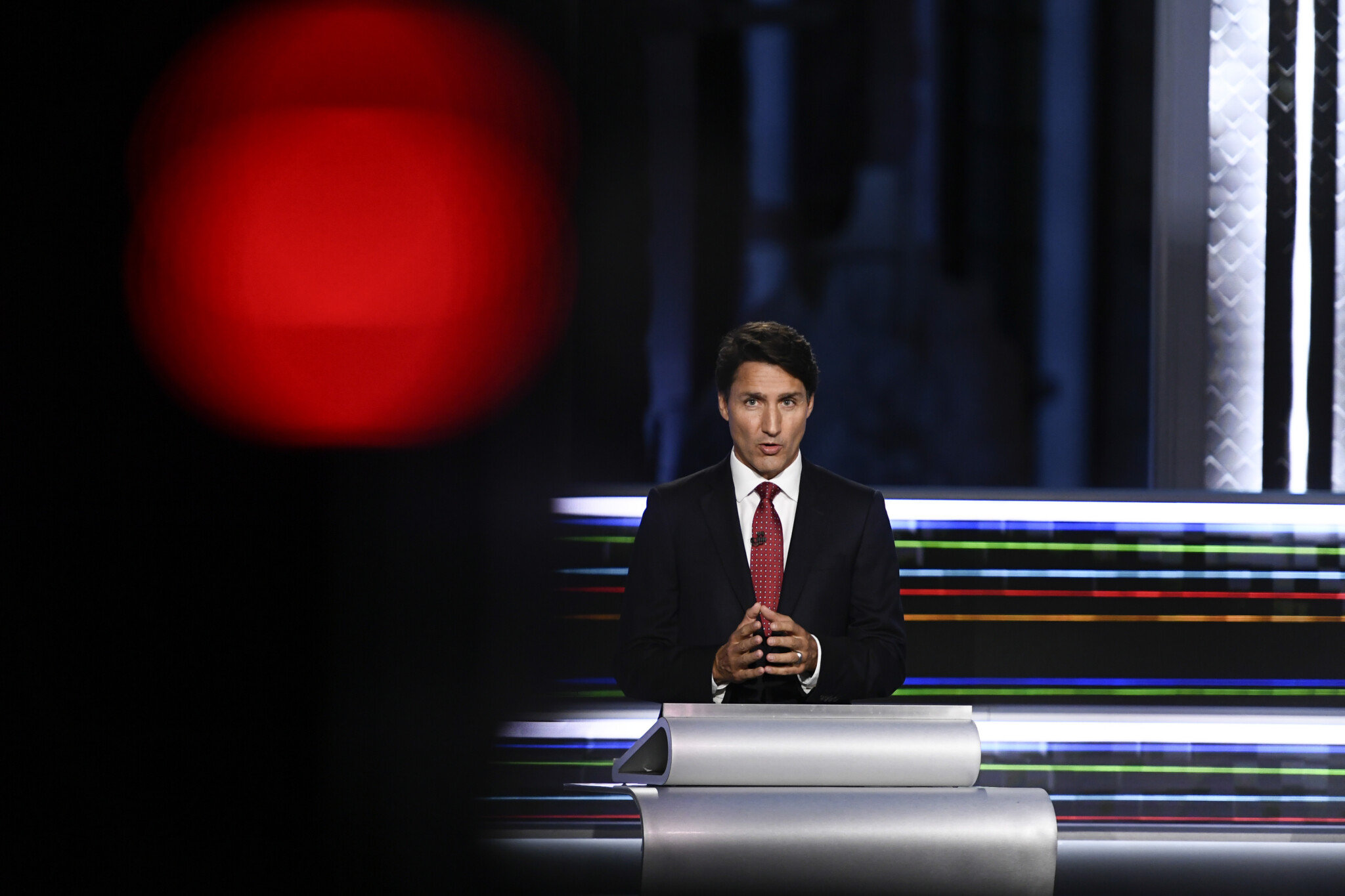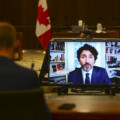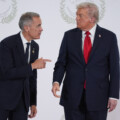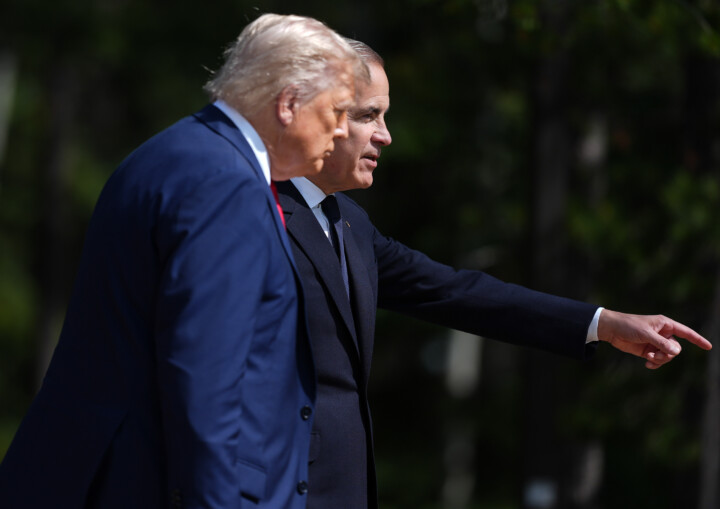It’s always nice to see who is reading The Hub these days. Presumably in response to my missive on why Pierre Poilievre should pre-emptively withdraw from election debates organised by the incumbent government’s handpicked commission—the Leaders’ Debates Commission, its executive director and former CBC journalist, Michel Cormier, penned a rare op-ed in the Globe and Mail.
The gist of the piece is that Canadians should trust that the commission, after spending some $10 million in public funds on election debates panned by critics as “utter, toe-curling embarrassment,” will now finally get it right. What are the commission’s new key promises? Wait for it…its debates will now have one instead of five moderators and a simplified on-stage format.
Specifically, acting commissioner (they’re currently leaderless after the departure of the patron saint of Trudeau government lost causes, David Johnston) Cormier’s “director’s notes” for his future debates include: “The set should…allow for a strong eyeline between the moderator and each leader on stage,” and, “There should be a natural flow and open exchanges between the leaders, instead of rigid timed segments.”
If all these so-called groundbreaking innovations sound familiar, you may have watched the acclaimed 2015 Munk Debate on Canada’s Foreign Policy featuring Stephen Harper, Trudeau, and Thomas Mulcair, or any number of previous election debates in Canada or internationally. As the saying goes, doing something late is better than not doing it at all.
In fairness to the commission, despite executive director Cormier’s contention that he and his staff “consulted widely since the 2021 federal elections, speaking with more than 50 debate organizers, moderators, and former participants,” this did not include the country’s sole private organisation dedicated to organising large-scale public debates since 2009—the Munk Debates.
The fact is that if we had been consulted, our advice would have gone beyond “helpful hints” garnered from organising over thirty high-profile debates on important, at times contentious, topics while informing and engaging the broader public.
Our objection to the commission isn’t simply its unbroken track record for organising expensive and ineffective debates. Rather, it is that an incumbent government’s policy preferences, expressed through the commission, are policing an increasingly high-stakes part of democratic elections which were never the subject of state oversight, until now.
Before the commission was created by the Trudeau government in 2018, election debates were produced by the “consortium,” or a group of broadcasters (CBC, CTV, Global, etc.) that organised all aspects of federal election debates for going on two generations. The broadcasters paid for debates. They had their journalists moderate them generally to a high standard. Large audiences tuned in and were most satisfied by what they saw.
In sum, civil society, not government, had the sole responsibility to organise leaders’ debates. The state rightly was nowhere in the picture.
But all of this changed after the 2015 federal election. As I have written previously, the new Liberal government glommed on to Harper’s unwillingness to take part in consortium-sanctioned debates as the justification for a state-funded and appointed debates commission. Their sackcloth and ashes contention was that election debates were in imminent danger of becoming unworkable without government rule setting, continuous oversight, and generous taxpayer funding. Debates, the government insisted, had to become more “predictable, reliable, and stable.”
Flash forward six years and we now have the worst of both worlds.
First, we have a government-appointed body that is taking a greater and greater role in determining not just the rules for who gets to take part in the debates, but the specifics of how they will be produced, as debuted in Cormier’s op-ed.
This is notable. What was originally envisioned as a “hands off” commission solely interested in participation criteria for federal parties and their leaders is now increasingly asserting itself regarding debate format, moderators, and tone and style—aspects of the debates that were not listed in their initial mandate when they were created and were previously left to the broadcasters in 2019 and 2021 elections.
What is next? Should the commission hire its own moderator? Why not take on producing the debates, given acting commissioner Cormier has now decided to weigh in and effectively mandate a specific format and approach? We are fast approaching a bizarro moment where the state is organising our election debates in everything but name only.
Not to mention, all of this is being funded by you, dear reader, to the tune of $10 million and likely millions more in the coming election. In the upside-down world that is Ottawa today, debate costs that were once previously borne by the broadcasters as a de facto condition of their licences are something they can now handsomely charge to taxpayers.
In turn for this exorbitant privilege, Canadians have election debates that by any objective measure have plunged in quality since 2015 and which no one is seemingly accountable for…not the broadcasters, the commission, and certainly not the government.
So, what can be done? How can we extract ourselves from the own goal on our pocketbooks and elections that is the Leaders’ Debate Commission?
Unfortunately, this is yet another action item on Poilievre’s increasingly long list of Liberal priorities and programs which must be swept into the dustbin of history. The good news is the commission is something that the Conservative leader can take out his broom and deal with now.
Mr. Poilievre, do Canadians the favour of stating your refusal to take part in election debates organised by a taxpayer-funded body appointed by your political opponent. As the clear front runner in the upcoming federal election, your boycott of the commission can create the impetus for civil society (e.g. broadcasters, universities, digital news outlets, etc.) to once again organise (and pay for) leaders’ debates just like it has for every previous election going back to the very first televised debate in 1968.
Our debates will surely be better for it. Our pocketbooks a bit heavier. And we will have taken an important step towards pushing back against those who would use the state to “manage” our elections at no small cost to the vibrancy of our democracy and its tradition of self-organising leaders’ debates.











